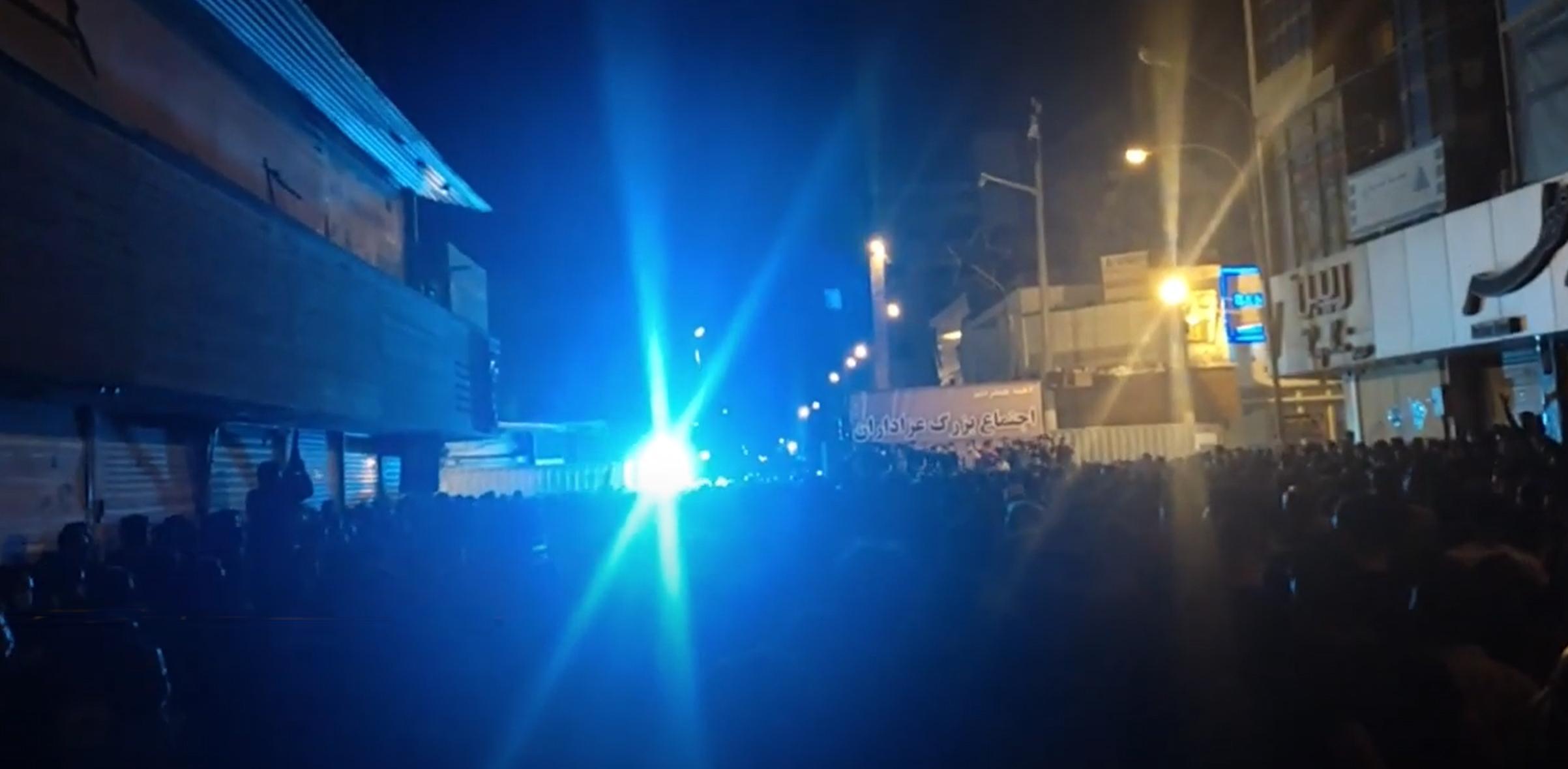People in authoritarian countries often feel as though they are living in a multiverse, with different versions of reality. Iran is a case in point.
On Thursday 26 May, up to 100,000 people including families with children flocked to the Azadi Stadium in Tehran to celebrate the release of a new pop song. This may seem little different from, say, crowds of screaming teenagers going to Wembley Stadium to worship Harry Styles.
Calling Salam Farmandeh “pop” is a bit of a stretch. The song, which translates as Hello Commander in English, is state-backed and tells the story of a young child who is speaking to Imam Mahdi, a messianic figure in Islam who rids the world of evil and injustice. The song also references the country’s spiritual leader Ayatollah Seyed Ali Khamenei.
The pro-government Tehran Times said the song’s performer Abouzar Rouhi had risen “to national, if not international, prominence for his tuneful song” while recognising that Rouhi “isn’t a singer in the true sense of the word”.
Government spokesman Ali Bahadori Jahromi said the song and concert was “a manifestation of [the children of] the 1390s [the 2010s] pledging allegiance to the Revolution”.
In an alternate reality at the same time, demonstrators also took to the streets of Iran following a collapse of a building on Monday 23 May in Abadan in south-western Iran in which at least 31 people are known to have died and scores more injured. The collapse of the Metropol building has been blamed on developer greed and corruption but the protests have become sharper following indifference to the plight of the families of the dead and injured.
Thousands of security forces have now descended on Abadan and other regional cities and protesters have been met with teargas and even bullets, with the response bordering on martial law in some cases.
There have also been protests in the Tehran suburb of Shahr-e Ray, where protesters chanted “Death to the dictator” in reference to Ali Khamenei.
“Public expressions of dissent are not tolerated in Iran,” said Hannah Somerville, editor of IranWire English, “and even less so in the border areas, which the mullahs regard as posing a heightened ‘security’ risk due to the diverse demographic makeup and higher rates of deprivation.”
She said: “The Supreme Leader’s first statement acknowledging the incident came three days too late. When it did arrive, it was desultory at best. That was ultimately what sparked the protests late last week, together with state media outlets deliberately minimising the disaster – for instance, by making reference only to ‘superficial injuries’ and not the number of dead. The head of Islamic Republic of Iran Broadcasting openly told a group of students at Sharif University of Technology on Monday that he had been asked to limit coverage to an hour or two at most.”
By contrast the coverage of the alternate reality – the Hello Commander concert – was extensive.
“The timing of this propaganda-fest could not have been worse, and will doubtless have further incensed any devastated families in Abadan who saw it on their TV screens,” said Somerville.
Following the protests, the internet has been disrupted in several major cities in the Khuzestan region including Abadan: a tactic to restrict the free flow of information that the Iranian state always deploys during times of popular unrest.
Mahsa Alimardani, senior researcher for MENA at Article 19, says the internet has been disconnected from 5pm to early morning on most days since protests started.
The authorities are always quick to cover up the reasons for the internet shutdowns.
“The Telecommunications Infrastructure Company announced on 26 May there would be nationwide disruptions related to infrastructure changes and updates,” said Alimardani.
The shutdowns have affected coverage of the protests in the country where WhatsApp and Instagram are both hugely popular.
The government has previously restricted coverage of protests on Instagram, said Alimardani.
“We had issues with protest content removals in July 2021, when we documented over 200 cases of protest footage being removed from Instagram,” she said. “Discussions with Instagram back then led to a temporary exception during the protests to allow for the chant that was being labelled as ‘violent incitement’ by their policies to stay on. The chant is a tradition of all Iran’s protests – “death to the dictator; death to Khamenei; death to the IRGC [Islamic Revolutionary Guard Corps]”.
IranWire’s Somerville says the cover-up of the situation in Abadan is a symptom of the government’s obsession with the ‘problem’ of the country’s youth.
“The situation is even more charged because we already know several of the tens of victims of the Metropol collapse were young people, “the youth” being a fixation for both Ali Khamenei and in Islamic Republic revolutionary doctrine, hence the Hello Commander event. This is not a story the regime wants told. The protest suppression and media muzzling are part and parcel of the same effort to make sure the story stays buried along with those young people from Abadan,” she said.
The Iranian government’s efforts to hide the news from Abadan and show their own version of the world were further stymied when Iranian actor Zahra Amir Ebrahimi referenced the situation when accepting the award for best actress at the recent Cannes Film Festival.
Ebrahimi won the award for her portrayal of an investigative journalist in the Persian-language crime thriller Holy Spider, which is based on the true story of Saeed Hanaei, a serial killer who targeted sex workers in the city of Mashad in 2000 and 2001. At the time, Hanaei became a folk hero for the ultra-religious conservatives for “cleansing” the city of prostitution.
Ebrahimi said in her speech, “Although I am very happy at moment, part of my being is sad for the Iranian people who are facing many problems every day. My heart is with the people of Abadan.”
Her comments won’t go down well the Iranian government and its attempts to create an alternate reality where all is well with the world.





